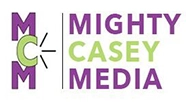What if your story never gets told?
Impossible, you say? What if you were a woman in the 17th, or even the early 20th, century? What if you were black, in the South, in 1930? Or black in the projects in the South Bronx, or the South Side of Chicago, today?
This question has been rolling around in my head for a while, and became a sharper internal inquiry after hearing a lecture this last Saturday night by Dr. Henry Louis Gates, Jr., Harvard history professor and editor of the first encyclopedia of African and African-American history, the Encyclopedia Africana.
The stories in that 2.5 million word encyclopedia are, in large part, being told for the first time outside the small family, church, civic, and cultural circles that lived them. How can an entire race of people take their full measure of place in the world without a full understanding of the fullness of their history? I don’t think they can, and I also think that’s one of the legacies of that great American original sin: slavery.
That a scholar of the repute and reach of Dr. Gates has pulled off an achievement that W.E.B. DuBois conceived of in 1909 is good news, for every person in the U.S. Children who learn a full picture of history have a better chance of finding their way, and their place, in the world. The current state of race politics aside, failure to educate all our children is a guarantee of both economic havoc and electoral ignorance.
Long ago and far away, I was a young grade-schooler who learned that women and people of color weren’t as important as dead white guys. I carried that with me until college, and started to break free as women’s history began to bubble up from the zeitgeist, and every mom’s kaffee klatsch from coast to coast became a consciousness-raising group.
Black history had a zeitgeist moment at the same time, in the late ’60s and early ’70s, yet some of the loudest voices exhorting change muffled their message with political overkill. Shirley Chisholm’s famous epigram, “I’d rather be black than a woman”, became less and less relevant in the following decades, as women – white, black, and brown – rose to the highest ranks in public and private commerce. Women reaped greater lasting benefits from the social change of the ’60s than did African-Americans, and I think that outcome can be laid directly at the feet of a lack of knowledge of the breadth and depth of their own history.
Dr. Gates made several points in his lecture Saturday at the Richmond Forum that black culture must re-embrace being “people of the book” – the keepin’-it-real, if-you-get-good-grades-you’re-an-Oreo embrace of ignorance that’s rampant in black youth culture now is antithetical to any idea of having a voice in the larger world. The second part of that sentence is mine, not Dr. Gates’, but I think if you asked him, he’d agree.
Today, Barack Obama made what might just be an historic speech on the racial divide in America, how it’s affected and affecting politics – and society at large – and how he wants to influence the national conversation on race, which is over two centuries overdue.
Whatever your politics, you have to welcome the fact that someone with some real experience of the issue has opened the discussion while the whole world was literally watching.
Two centuries late, we’ve all got a lot to discuss.
That’s my story, and I’m stickin’ to it…



